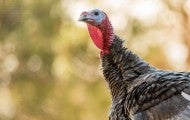Showing 9 of 9 results
To protect their pets, many owners turn to microchips. Microchips are tiny transponders, about the size of a grain of rice, that can be implanted under your pet’s skin by most veterinarians and animal shelters; some shelters implant chips in all pets they place. A microchip isn’t the same as a GPS...







